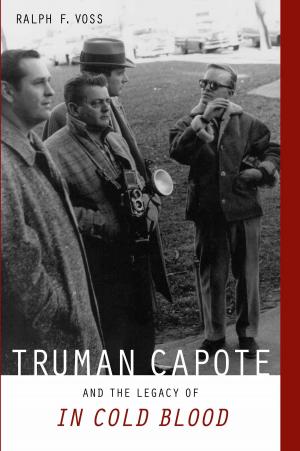Germany in Central America
Competitive Imperialism, 1821-1929
Nonfiction, History, Americas, Central America, Germany| Author: | Thomas Schoonover | ISBN: | 9780817384890 |
| Publisher: | University of Alabama Press | Publication: | August 8, 2013 |
| Imprint: | University Alabama Press | Language: | English |
| Author: | Thomas Schoonover |
| ISBN: | 9780817384890 |
| Publisher: | University of Alabama Press |
| Publication: | August 8, 2013 |
| Imprint: | University Alabama Press |
| Language: | English |
Using previously untapped resources including private collections,
the records of cultural institutions, and federal and state government
archives, Schoonover analyzes the German role in Central American domestic
and international relations.
Of the four countries most active in independent Central America-Britain,
the United States, France, and Germany- historians know the least about
the full extent of the involvement of the Germans.
German colonial expansion was based on its position as an industrialized
state seeking economic well-being and security in a growing world market.
German leaders were quick to recognize that ties to the cheap labor of
overseas countries could compensate for some of the costs and burdens of
conceding material and social privileges to their domestic labor force.
The Central American societies possessed limited resource bases; smaller
and poorly educated populations; and less capital, communications, and
technological development than Germany. They saw the borrowing of development
as a key to their social, economic, and political progress. Wary Central
American leaders also saw the influx of German industrialists as assurance
against excessive U.S. presence in their political economies and cultures.
Although the simplistic bargain to trade economic development for cheap
labor appeared to succeed in the short term, complex issues of German domestic
unemployment and social disorder filtered to Central American countries
and added to their own burdens. By 1929, Germany had recovered most of
its pre-World War I economic position.
Using previously untapped resources including private collections,
the records of cultural institutions, and federal and state government
archives, Schoonover analyzes the German role in Central American domestic
and international relations.
Of the four countries most active in independent Central America-Britain,
the United States, France, and Germany- historians know the least about
the full extent of the involvement of the Germans.
German colonial expansion was based on its position as an industrialized
state seeking economic well-being and security in a growing world market.
German leaders were quick to recognize that ties to the cheap labor of
overseas countries could compensate for some of the costs and burdens of
conceding material and social privileges to their domestic labor force.
The Central American societies possessed limited resource bases; smaller
and poorly educated populations; and less capital, communications, and
technological development than Germany. They saw the borrowing of development
as a key to their social, economic, and political progress. Wary Central
American leaders also saw the influx of German industrialists as assurance
against excessive U.S. presence in their political economies and cultures.
Although the simplistic bargain to trade economic development for cheap
labor appeared to succeed in the short term, complex issues of German domestic
unemployment and social disorder filtered to Central American countries
and added to their own burdens. By 1929, Germany had recovered most of
its pre-World War I economic position.















